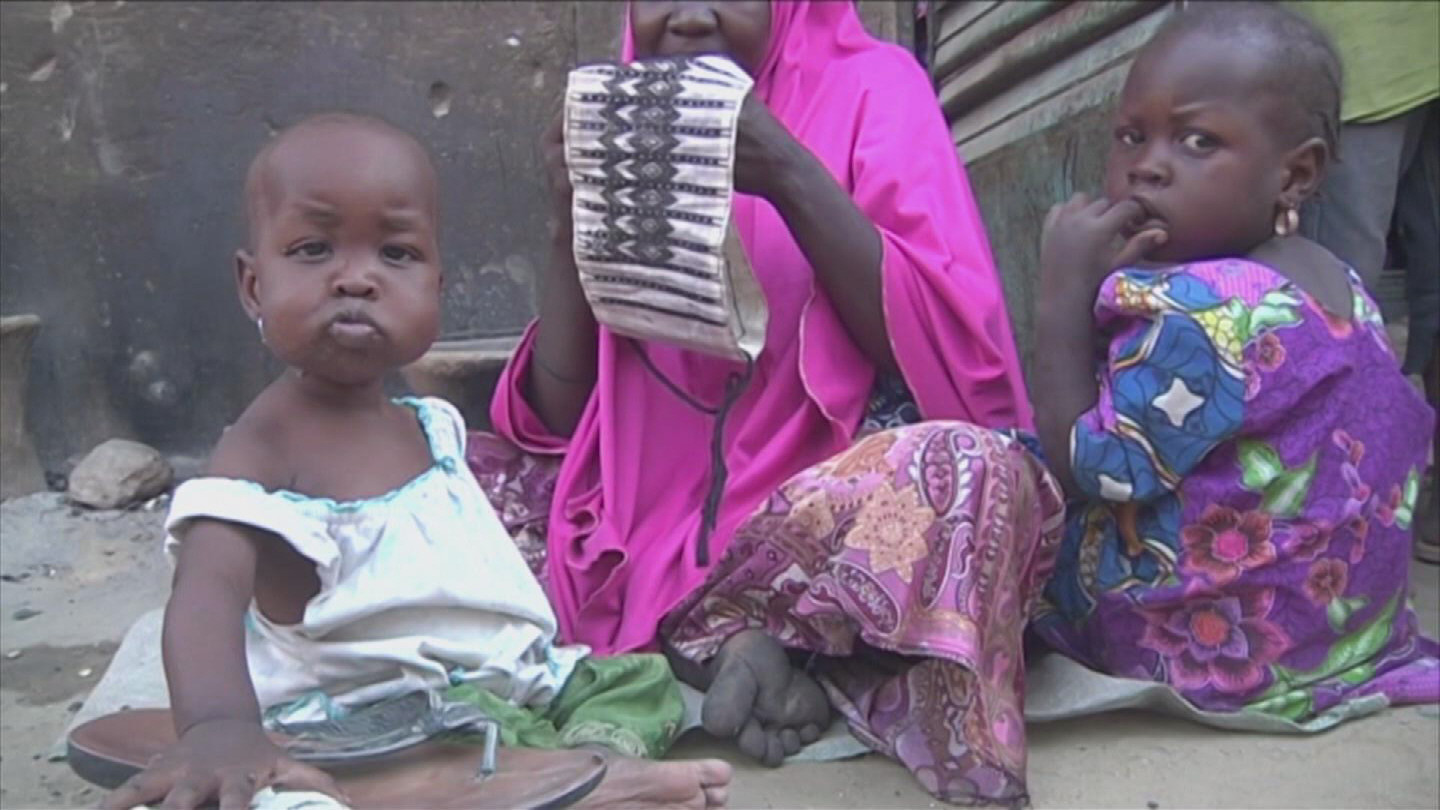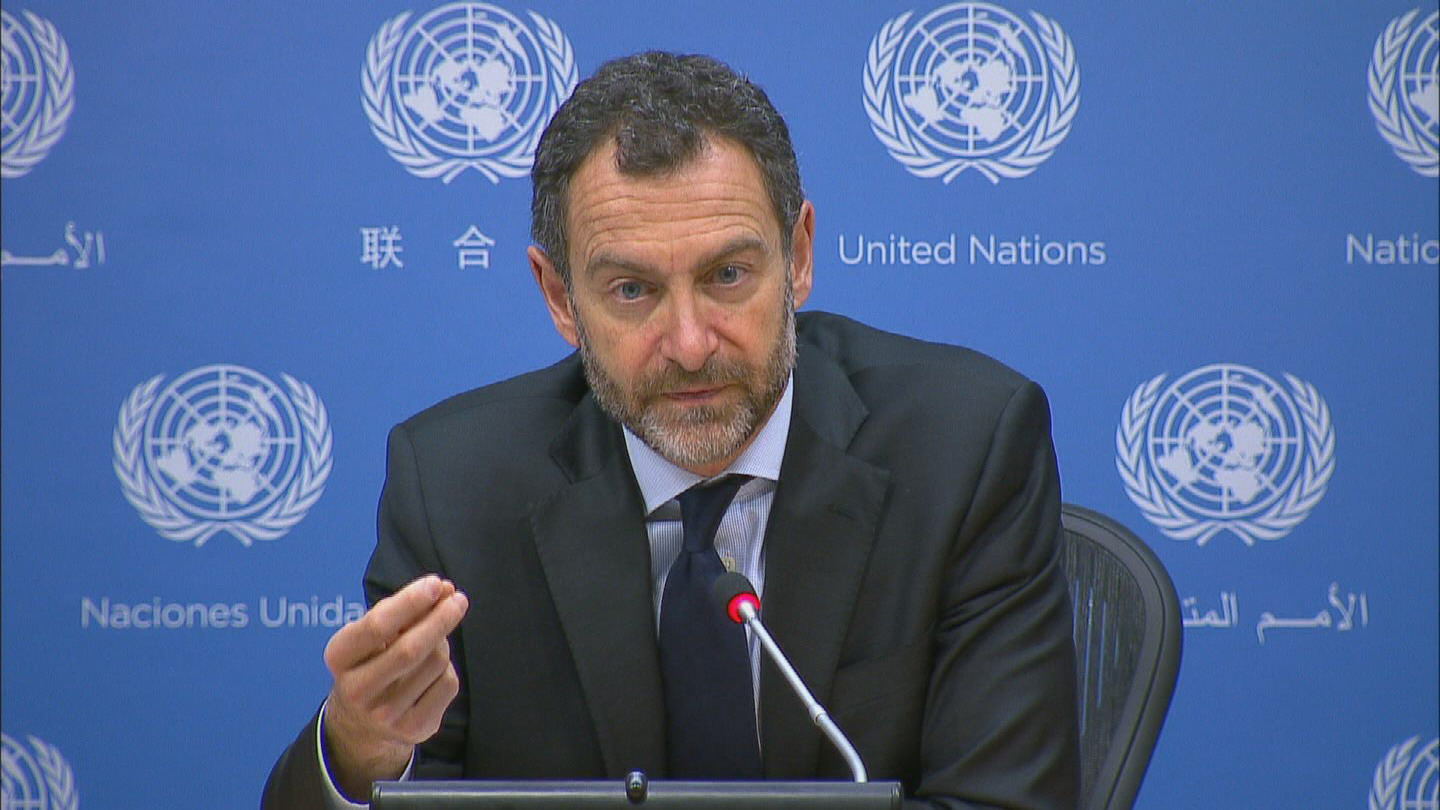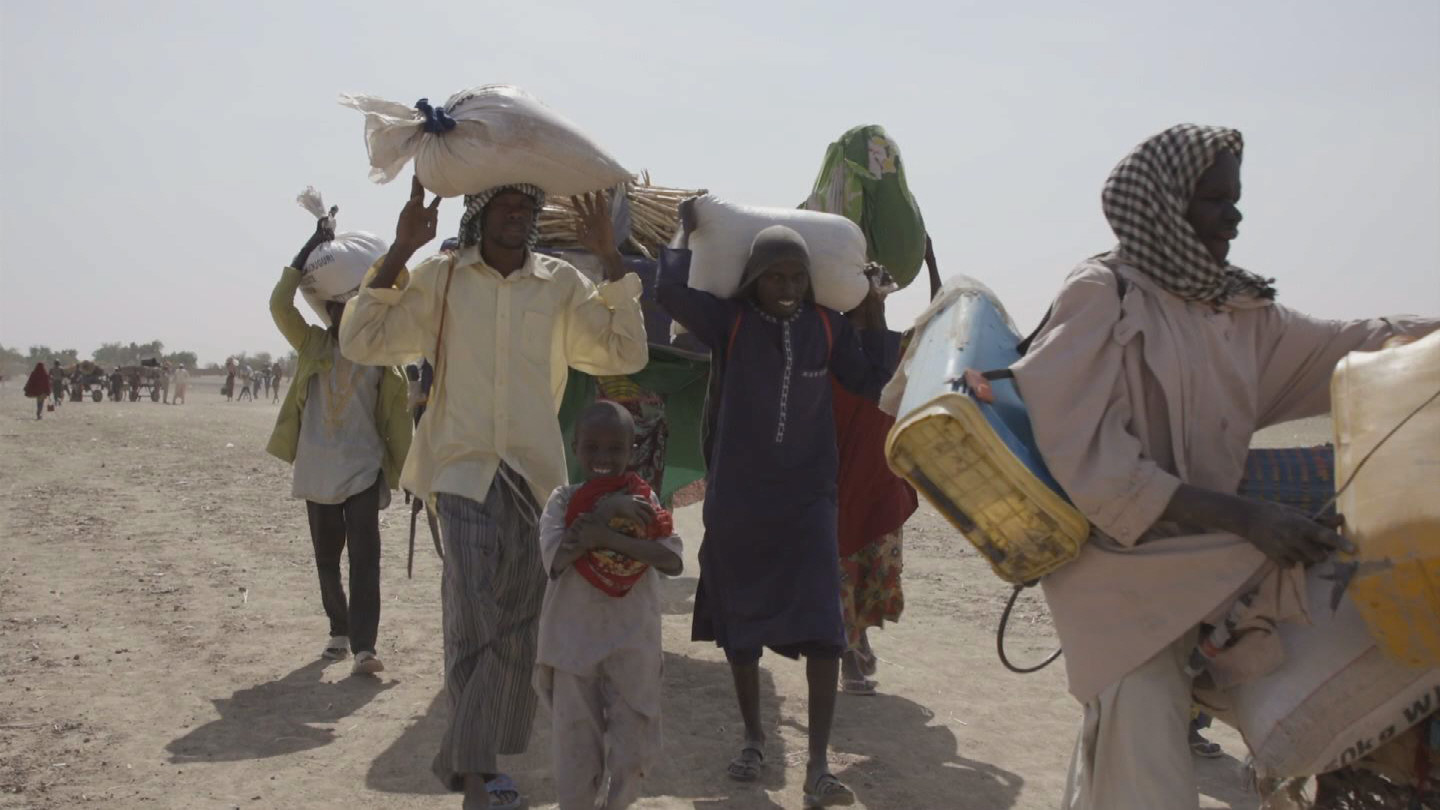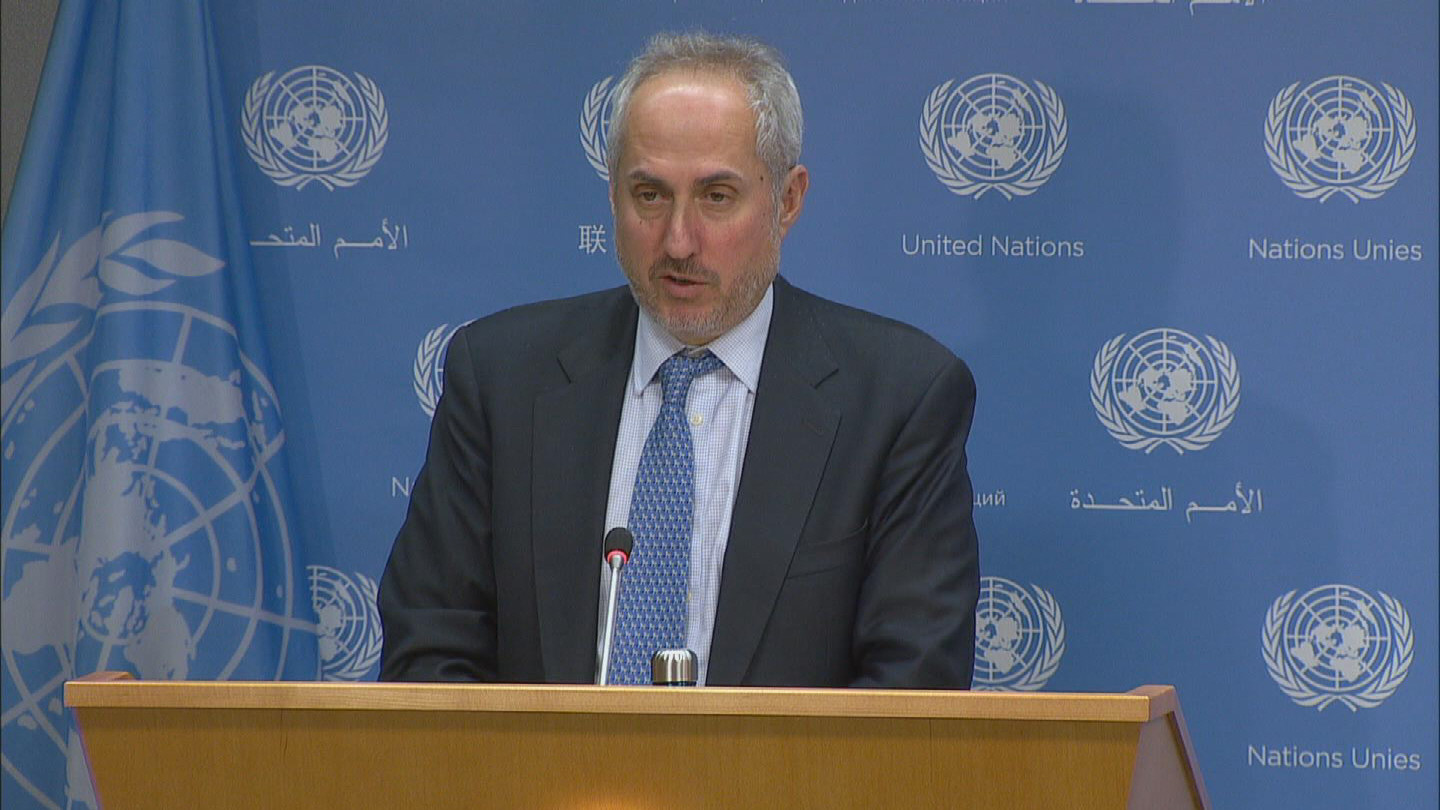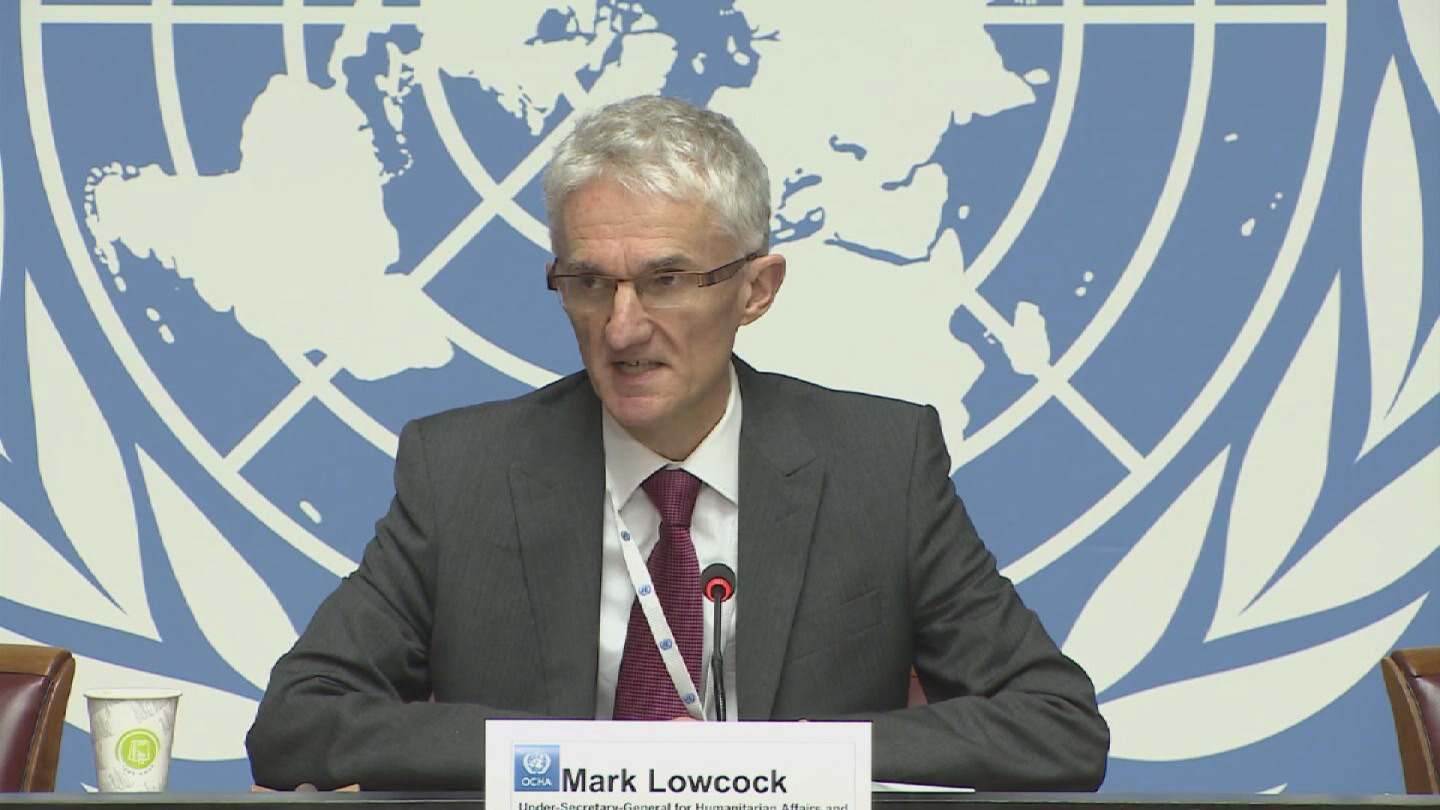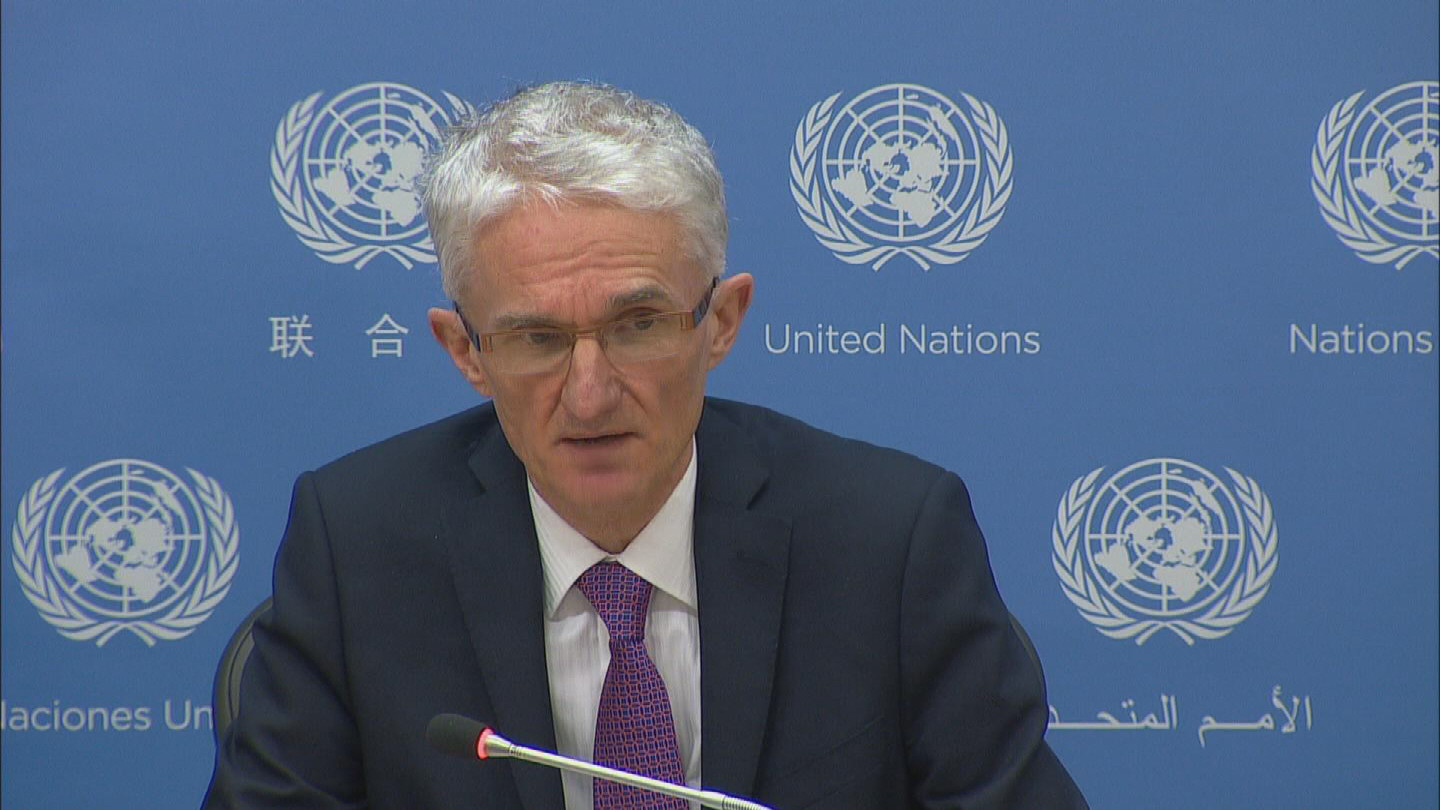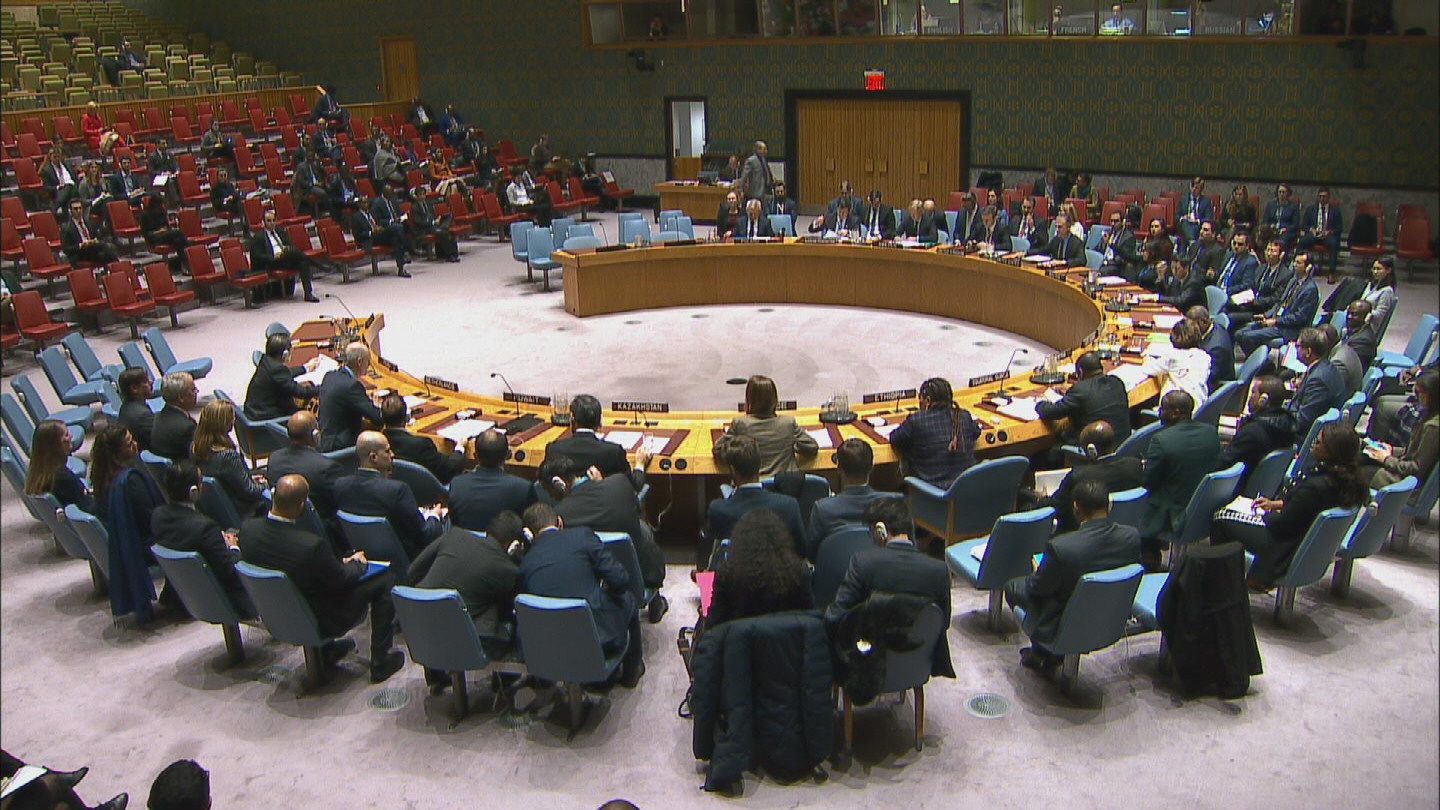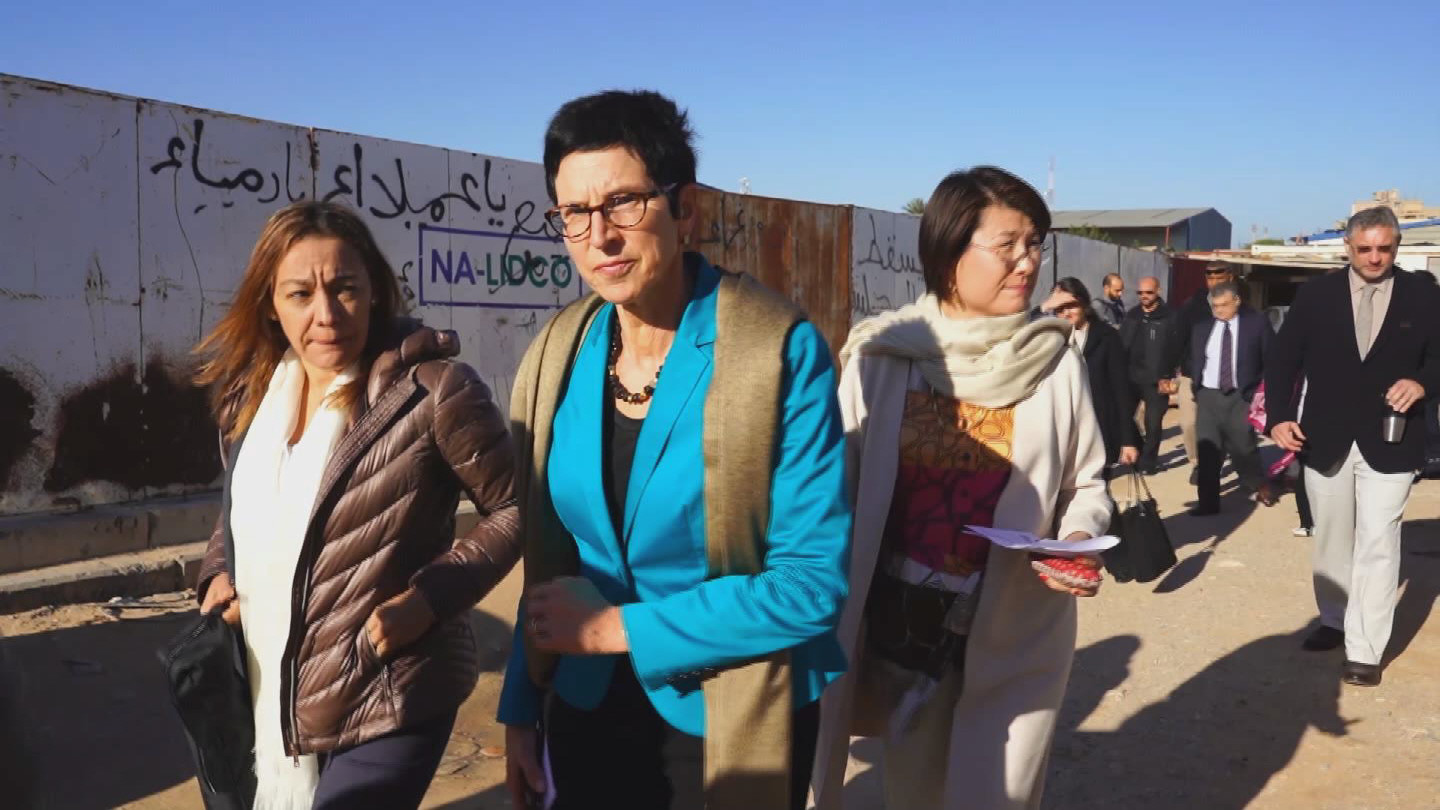GENEVA / NIGERIA HUMANITARIAN SITUATION
Download
There is no media available to download.
Share
STORY: GENEVA/ NIGERIA HUMANITARIAN SITUATION
TRT: 2:55
SOURCE: UNTV CH
RESTRICTIONS: NONE
LANGUAGE: ENGLISH / NATS
DATELINE: 30 MAY 2017 GENEVA, SWITZERLAND
1. Exterior, Palais des Nations
2. Wide shot, press briefing room
3. SOUNDBITE (English) Edward Kallon, Humanitarian Coordinator in Nigeria (OCHA):
“We are extremely concerned because we don’t have access to some pockets where an estimated 700,000 people are expected, currently caught up, behind the battle lines from Boko Haram. We don’t have access to those areas so we are not very clear about the vulnerability status of the population in those pockets but what we have seen is that when areas are liberated, and when people are coming out, we have seen very ugly faces of vulnerability especially among women and children. We have seen signs of starvation.”
4. Close up, journalist
5. SOUNDBITE (English) Edward Kallon, Humanitarian Coordinator in Nigeria (OCHA):
“The convergence of three critical processes is of serious concern to us although also very critical in finding the solution to the crisis. One of the processes is the Boko Haram insurgency of which you are aware of and its impact as I have already laid out. We also have the counter insurgency strategy of the Nigerian army and then the counter terrorism effort by the multinational UN task forces. These three processes are resulting in serious protection concerns in north-east Nigeria.”
6. Med shot, journalists
7. SOUNDBITE (English) Edward Kallon, Humanitarian Coordinator in Nigeria (OCHA):
“Over 7,550 men, boys and women have reported sexual gender- based violence since the start of the conflict. There are reports of sexual exploitation due to the collapse of the traditional coping mechanism and also transactional sex and the last but not the least protection concern is the violation of the rights of children.”
8. Wide shot, journalists
9. SOUNDBITE (English) Peter Lundberg, Deputy Humanitarian Coordinator in Nigeria (OCHA): “450,000 children which are expected to be in an acute malnourished situation will not die, If they die they will most likely die from disease that could be easily prevented if their immune system had been much stronger. So what we will see is that people will die from diarrhoea and malaria and anything else that they would normally be able to survive if they were in a much better nutritional condition.”
10. Close up, journalist
11. SOUNDBITE (English) Edward Kallon, Humanitarian Coordinator in Nigeria (OCHA):
“The camps they are coming from in Cameroon is holding roughly 80,000 people and an additional 35,000 people are living outside the camp in the Cameroonian side so we are quite concerned that this is happening at a time where additional funding and resources is urgently required to meet the needs.”
12. Med shot, reporters
A UN Humanitarian official said an estimated 700,000 people in Nigeria remain beyond the reach of humanitarian aid and are living in desperate conditions.
Now in its eighth year, the ongoing violence induced by the Boko Haram insurgency since 2009, has killed 20,000 people and caused 1.8 million to flee their homes in north-eastern Nigeria. The recent influx of refugees returning from Cameroon and neighbouring countries in the past few weeks is further stretching already scarce resources and funding is urgently needed.
Speaking to reporters today (30 may) in Geneva, Edward Kallon, Humanitarian Coordinator in Nigeria (OCHA), expressed extreme concern at the lack of “access to some pockets where an estimated 700,000 people are expected, currently caught up, behind the battle lines from Boko Haram. We don’t have access to those areas so we are not very clear about the vulnerability status of the population in those pockets but what we have seen is that when areas are liberated, and when people are coming out, we have seen very ugly faces of vulnerability especially among women and children. We have seen signs of starvation.”
6.9 million people are in dire need of life-saving aid across north-east Nigeria, and there is a looming threat of famine in the area. According to the latest Cadre Harmonisé assessment, 4.7 million people are currently classified as in need of food assistance and if nothing is done this number is expected to rise to 5.2 million between June and August this year during the peak of the lean season when certain areas become inaccessible owing to flooding.
Peter Lundberg, Deputy Humanitarian Coordinator in Nigeria stated this could cause deaths from diseases like, “diarrhoea and malaria and anything else that they would normally be able to survive if they were in a much better nutritional condition.”
Those who have returned are in a precarious state, lacking all basic life necessities, including shelter, food and water, making them vulnerable to gender-based violence.
He said, “Over 7,550 men, boys and women have reported sexual gender- based violence since the start of the conflict. There are reports of sexual exploitation due to the collapse of the traditional coping mechanism and also transactional sex and the last but not the least protection concern is the violation of the rights of children.”
Kallon reiterated that “additional funding and resources is urgently required to meet the needs” and an international response is urgently needed.


